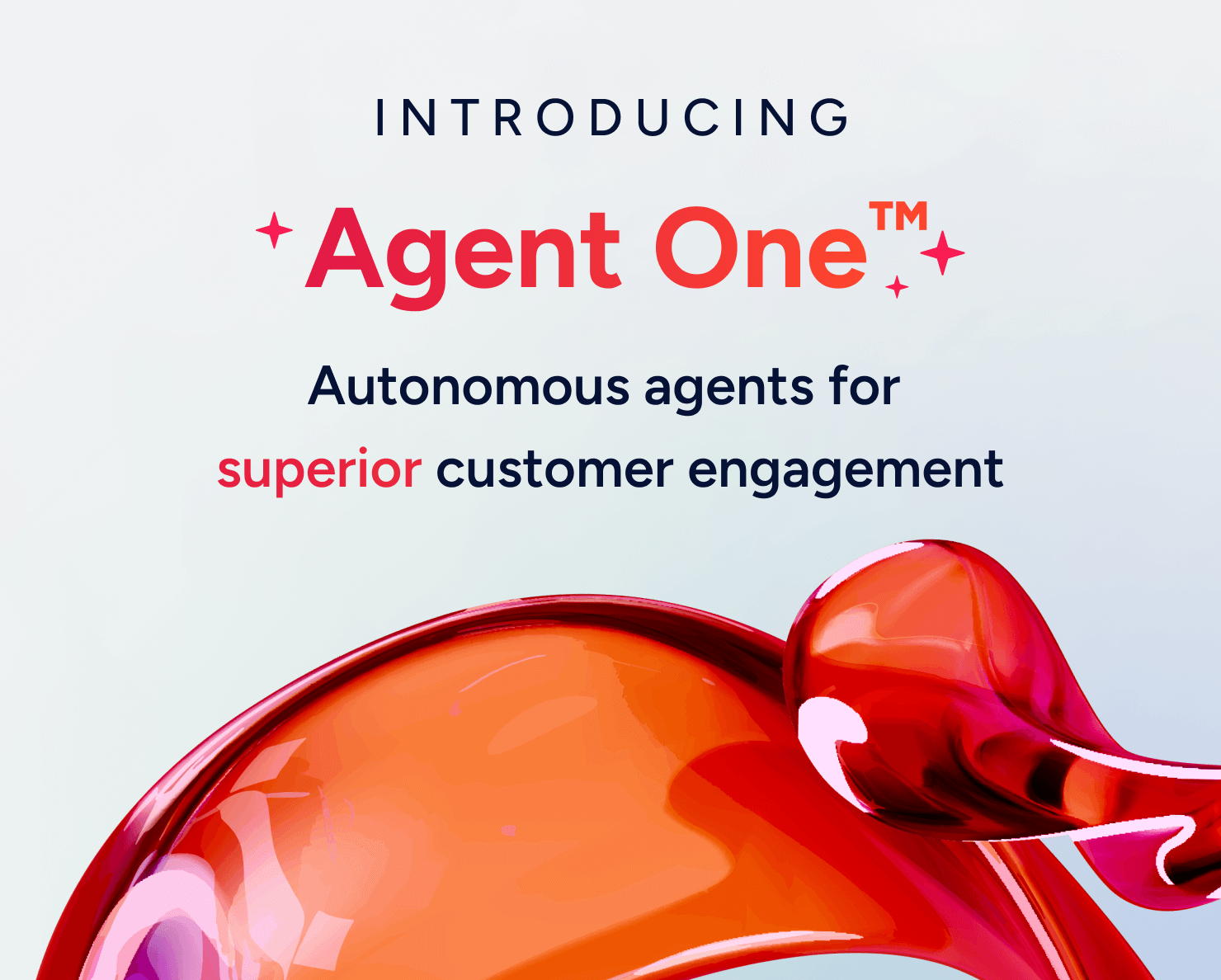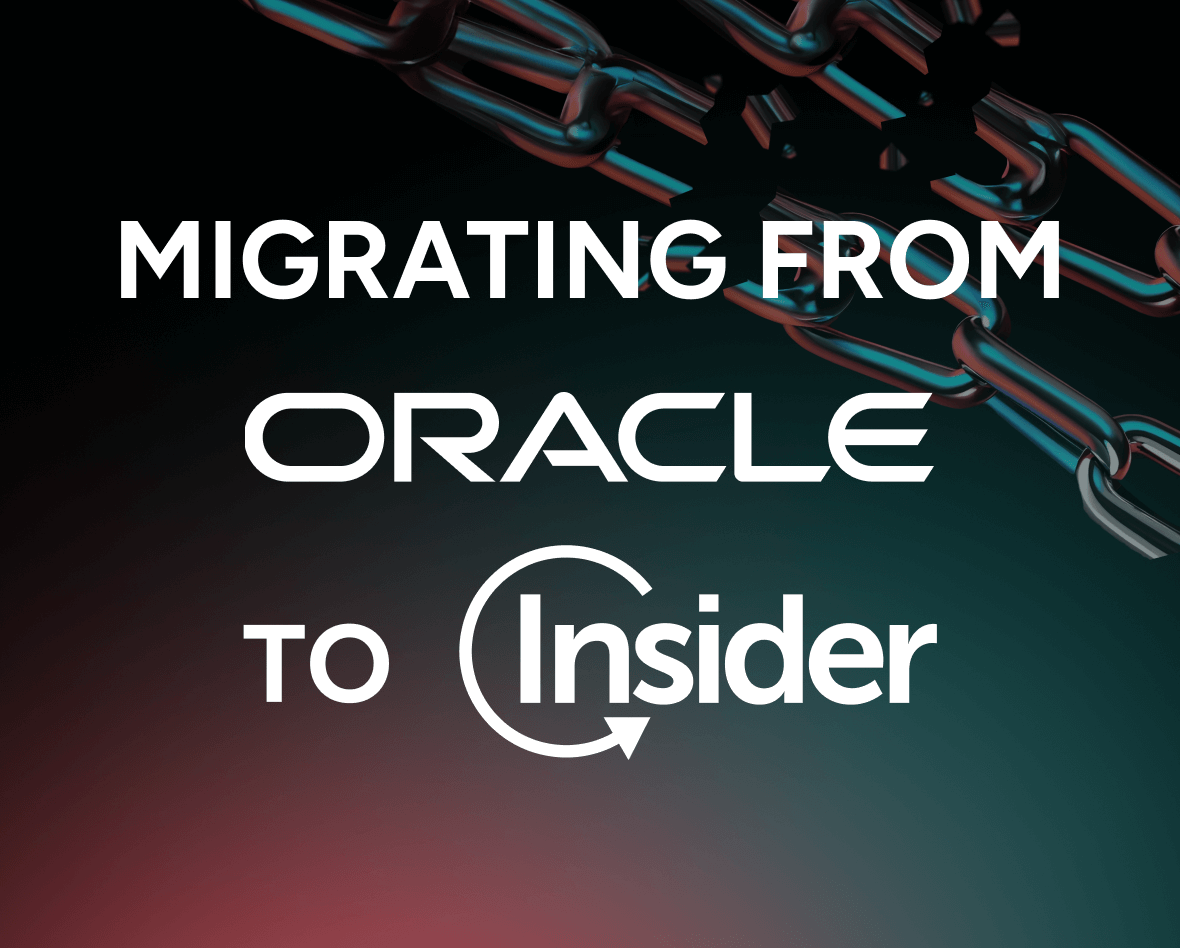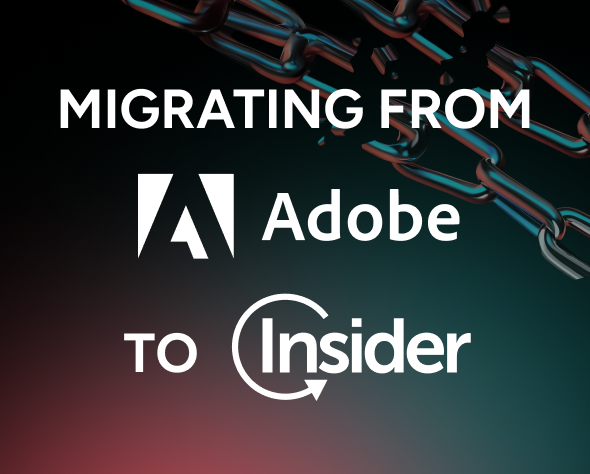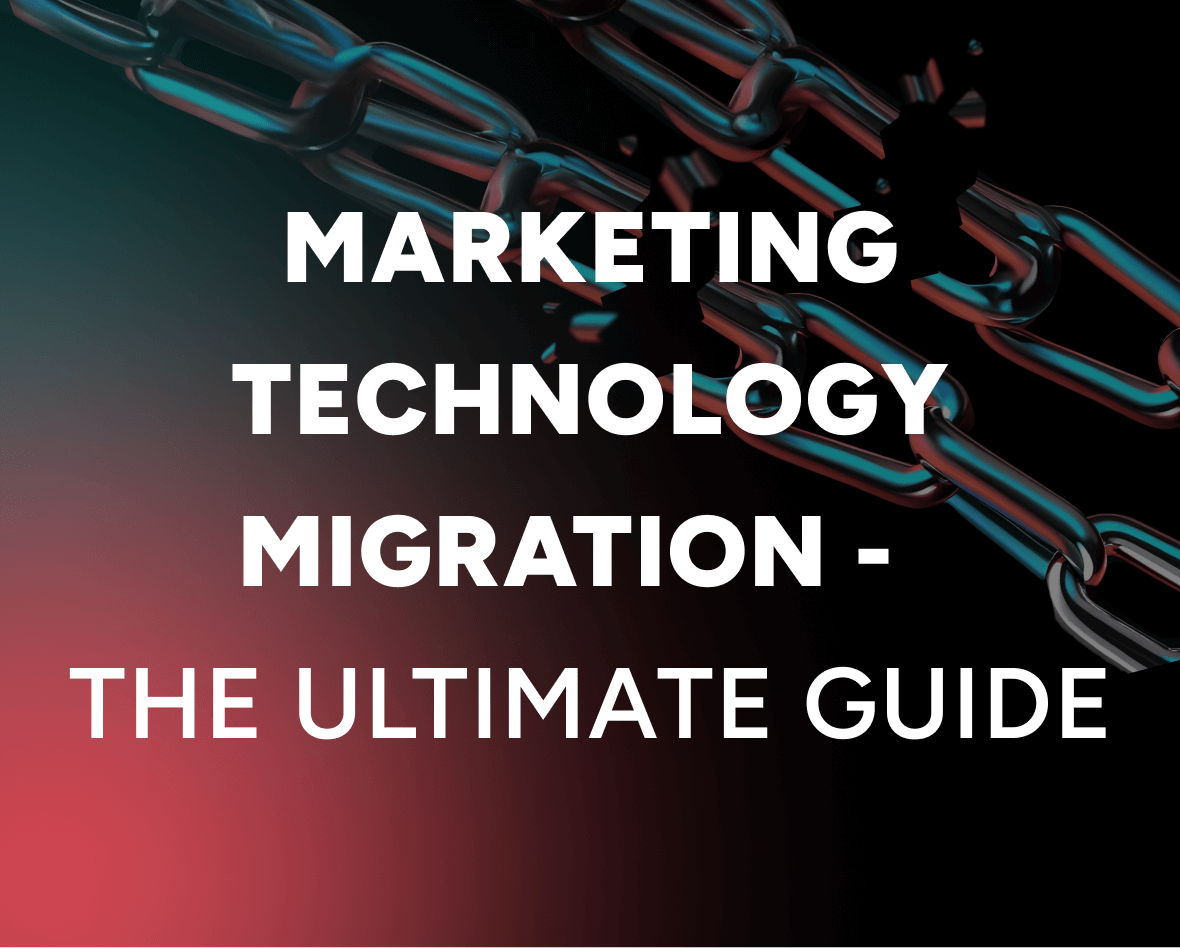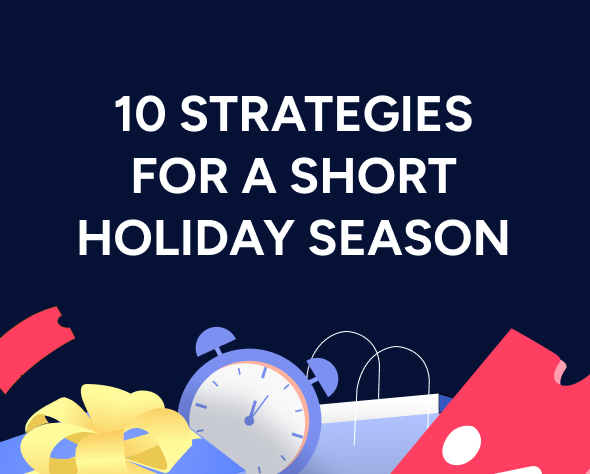AI in marketing: Benefits, Strategies, and Examples (2025 Guide)
Updated on 24 Sep 2025
What is AI marketing?
Artificial intelligence (AI) technologies are now an integral part of most digital marketers’ toolkits.
However, with so many new solutions hitting the market, it’s easy to get overwhelmed and miss an opportunity to employ AI in the best possible way for your business.
That’s why in this guide, we’ll explore how AI can be used by marketers to achieve different goals — like improving productivity, accurately predicting customer behaviors, driving revenue and retention, and much more.
We’ll also discuss some of the challenges companies face when using AI and real-world examples of successful AI marketing implementations from brands like Adidas and Allianz.
AI marketing is a broad term that encompasses many techniques that marketers use to:
- Automate or simplify time-consuming tasks, such as content generation or reporting.
- Anticipate future customer behaviors, such as purchases or mobile app installations.
- Create personalized experiences across all lifecycle stages and brand interactions.
Some AI, machine learning, and deep learning techniques have been used by marketers for years. Others are newer, spurred by the success of ChatGPT and the new wave of generative AI solutions on the market.
Overall, the uses of AI for marketing purposes involve solutions that perform data analysis and provide marketers with actionable insights (e.g., into what customers are likely to do next), automate specific tasks (e.g., content creation), or deliver personalized content across channels.
What are the top use cases and benefits of AI for marketing teams?
There are different ways we can categorize AI’s marketing use cases. For example, we can distinguish between three different types of AI marketing technologies that serve distinct purposes:
- Predictive AI, which refers to the use of algorithms to analyze past data, identify patterns, and make predictions for future customer behaviors (like purchases, churn, or channel engagement).
- Conversational AI, which refers to the use of techniques like natural language processing (NLP) to understand customer queries and provide timely and relevant responses.
- Generative AI, which is the newest form of AI used by marketers. Generative AI models analyze inputs like prompts in order to produce content like text, images, music, and video.
Many teams use a combination of these AI types across different workflows. For example, Insider offers various predictive, conversational, and generative AI capabilities.
Teams can use them to find valuable customer segments (predictive AI), create engaging marketing messages for them (generative AI), and have unstructured, two-way conversations with them (conversational AI).
Additionally, our platform also has a mix of traditional AI capabilities for delivering personalized product recommendations and messages across your website, mobile app, email marketing campaigns, and other channels.
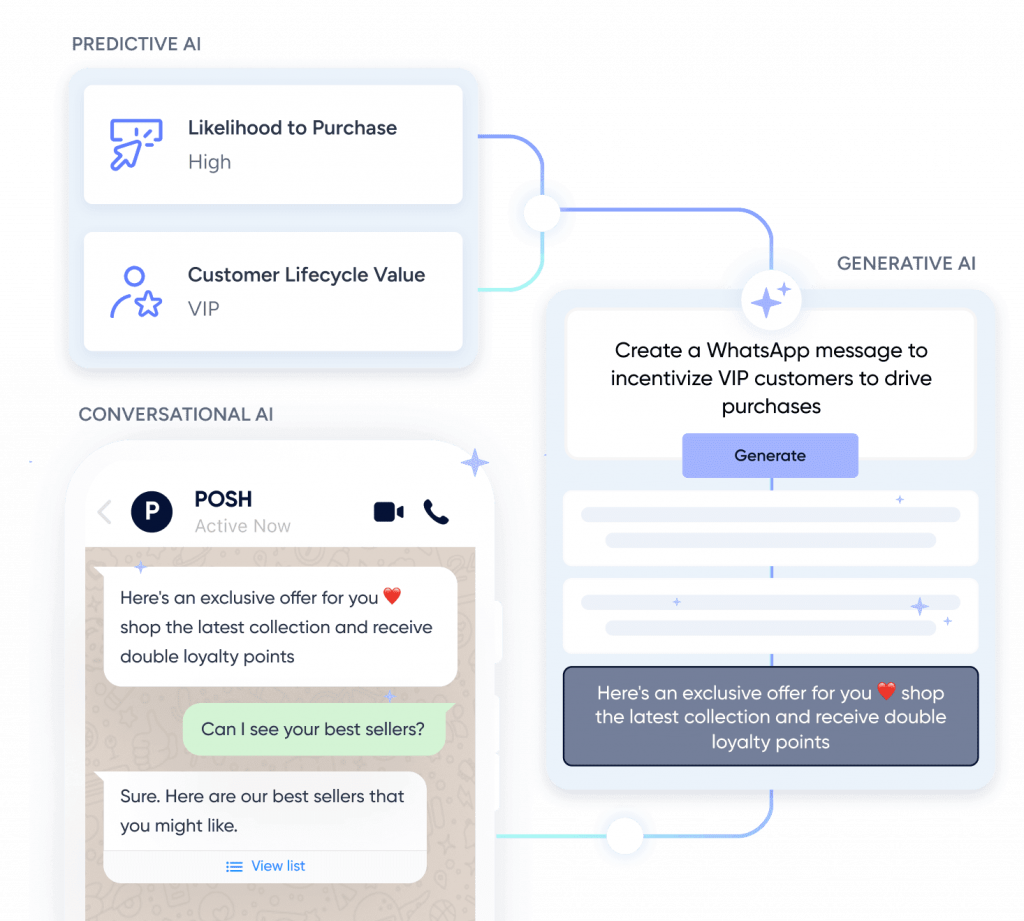
Put simply, these AI technologies offer a combination of benefits for marketers, including:
- Faster and more efficient campaign launches.
- Higher conversion rates and revenue via personalization.
- More accurate segmentation based on predicted behaviors.
- Better customer service and more effective conversational commerce.
- Higher productivity.
- And much more.
In the next sections, we’ll explore six of the most important ways you can use AI in your marketing workflows to achieve these benefits.
#1 Predict customer behaviors
Traditional marketing tools enabled teams to target customers based on known traits and behaviors, like locations, devices, and past purchases. AI solutions opened many new targeting opportunities, including the ability to segment customers based on what they’re likely to do.
For example, marketers today can use AI to identify customers who:
- Have a high discount affinity.
- Have a high predicted customer lifetime value (CLTV).
- Have a high likelihood to purchase or engage on a specific channel (e.g., email or SMS).

These predictive marketing techniques can help you utilize your budget more effectively and uncover new opportunities for driving revenue.
For example, you can focus your campaigns only on customers who have a high likelihood to purchase to ensure you’re reaching people with real buying intent. You can also show discount messages only to users with a high discount affinity (instead of to your entire customer base) to convert them faster while protecting your profit margins.
#2 Deliver personalized product recommendations
AI-powered product recommendation engines can analyze large data sets and show relevant products based on customers’ preferences, needs, and interests.
For example, at Insider, we have our Smart Recommender tool which uses customer data to deliver tailored recommendations at each touchpoint, including your website, mobile app, emails, and more. This AI-powered tool also lets you choose from a variety of recommendation algorithms, including ones that use customer data (e.g., user-based or location-based bestsellers) and ones that don’t (e.g., best-sellers or new arrivals). This is crucial for eCommerce brands that want to help customers discover relevant products and services as quickly as possible.

For a real-life example, refer to our case study with MAC Cosmetics. This brand used our Smart Recommender to show “frequently viewed”, “purchased together”, and “top sellers” on product and cart pages, which helped them achieve a 20.56% add-to-cart rate and a 2.3% increase in conversion rates.
#3 Generate campaign segments, journeys, and content
Generative AI has recently opened up plenty of new opportunities for marketers looking to boost productivity and revenue. While most people associate generative AI with creating copy, images, or (soon) videos, this technology can be actually useful during the entire campaign-building process.Insider’s Sirius AI™ (our generative AI solution) can use simple text prompts to createcustomer segments, customer journeys, images, and campaign text (e.g. subject lines or body copy).

All you have to do is tell the AI what your goal is. For instance, you may want to find customer segments that are at a high risk of churning and create an automated journey to engage them with engaging, relevant content based on their needs and preferences.
#4 Automate channel selection and send-time optimization
One of the most difficult tasks of the campaign creation and marketing automation processes is deciding which channels to use and when to trigger each message (e.g., email, SMS, social media, and so on). This can easily take months of A/B testing to get right.
AI solves that problem by analyzing each recipient’s behavioral patterns to determine the best time and channel to contact them. At Insider, we call these features Send-Time Optimization (STO) and Next-Best Channel.
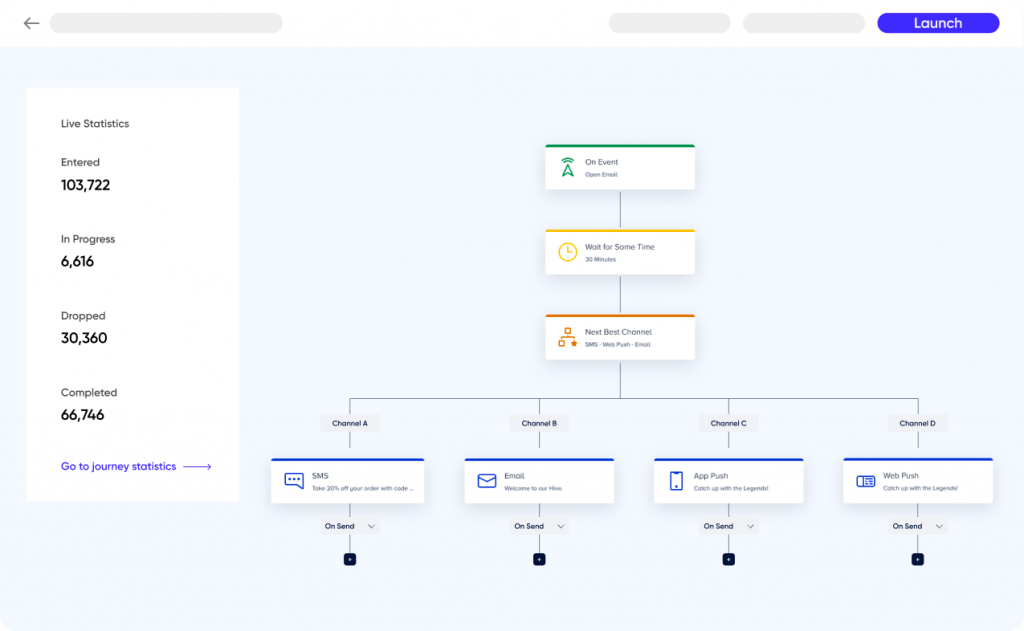
You can easily enable STO for each specific campaign message (e.g., email, SMS, WhatsApp message, and so on). At the same time, you can leverage Next-Best Channel by using a simple drag-and-drop editor and selecting the channels you want to try in each campaign.
#5 Scale A/B tests across channels and speed up campaign optimization
A/B testing is another crucial marketing task that becomes time-consuming as you scale your experiments and customer base. Not only do you need to prepare test hypotheses and campaign materials but you must also manually review and update each experiment based on its results.AI can take a lot of the work off your plate here as well. For example, A/B Test Winner Auto-Selection is a feature that optimizes each journey by guiding users to the winning variant in an A/B test. You just need to provide a duration for the test and select a winning metric beforehand, like open rate, conversions, or revenue.
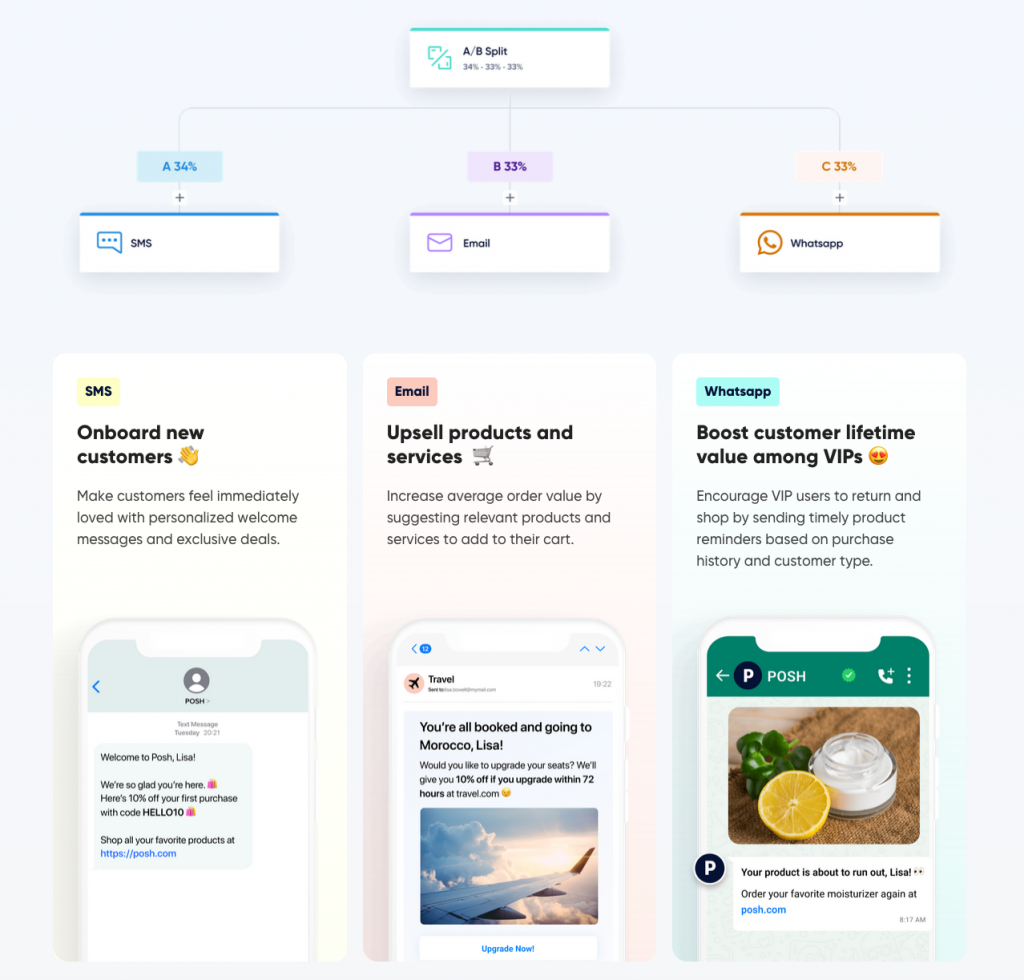
That way, you don’t need to waste time manually reviewing each experiment’s results and optimizing it based on them.
#6 Have unstructured conversations with customers at scale
Providing fast, high-quality customer service at scale has always been a challenge, especially online. The sheer volume of customer queries makes it impossible for many brands to respond quickly without an automated solution that can answer at least simple questions instantly.
AI has been a big help here for years. Thanks to techniques like NLP, AI chatbots can understand the intent behind each query and provide relevant information in seconds or connect customers to a human representative when necessary.This is essential for companies that want to provide exceptional customer service and drive more revenue via data-driven customer conversations. For example, Renault used our AI virtual assistant to alleviate the pressure from the customer support team offering automated, relevant responses to over 350 different prompts on WhatsApp.
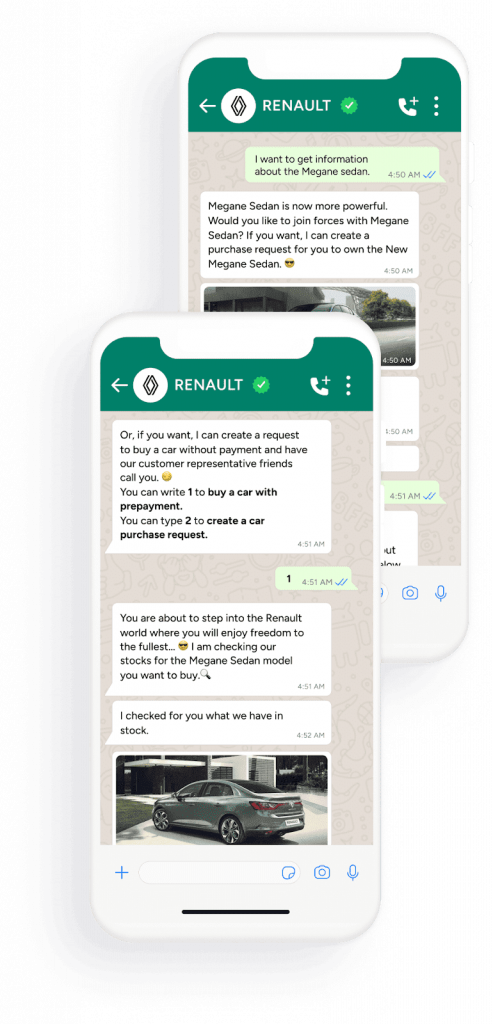
This resulted in a 93% decrease in customer service wait times and a 4% increase in conversion rates.
What are the challenges of using AI in marketing?
As you can see, AI tools offer many potential benefits to marketing teams. However, deploying them successfully also comes with a set of challenges.
First, AI can only be as good as the data it’s trained on. If the data it’s using is not accurate, the results will be suboptimal or even negative for the customer experience as a whole.
This can be an issue for teams whose customer data is scattered across disconnected systems, like customer relationship management (CRM) tools, content management systems, analytics platforms, and so on.
That’s why at Insider, we offer an industry-leading customer data platform (CDP) that can take that disconnected data and organize it into a convenient database. Having your data in one place ensures that your AI marketing tools are providing insights based on all the available information about your customers.

Another hurdle is the time it takes to train AI solutions to work in the way you want them to.
For example, if you’re using an AI-powered chatbot to automate customer conversations, you’ll need to spend time on tasks like setting knowledge limits and building conversational flows. That’s why it’s a good idea to partner with an experienced vendor who can guide you through the process as smoothly as possible.
Finally, data privacy is another budding problem for many AI use cases. To avoid it, you need to understand what data your solution is using and ensure that data is collected in a way that complies with privacy regulations.
What are the Examples of AI marketing strategies (and their impact on key metrics) ?
To round out this guide, we’ll explore how four brands used AI-powered marketing strategies in different industries — including retail, travel and hospitality, and financial services — to automate time-consuming tasks and drive business results.
Adidas: Delivering personalized product recommendations for higher conversion rates
Adidas is the largest sportswear manufacturer in Europe and the second-largest in the world.
When the COVID-19 pandemic hit, the brand’s traffic grew exponentially but their team was ill-equipped to engage and retain new visitors. That’s why they needed a solution that could help them deliver personalization at scale, which is one of AI’s main use cases.
The company’s marketing team settled on Insider as their vendor of choice for achieving their goals. Specifically, they used our platform’s segmentation and Category Optimization tools to boost AOV from new users by 259% in just one month and drive a 50.3% increase in mobile conversion rates.
Our growth experts also helped them implement Smart Recommender — our AI-power tool for delivering highly personalized cross-channel product recommendations.
This tool enabled Adidas to deliver relevant product suggestions to their customers, including trending products, recently viewed items, location-based bestsellers, and often purchased together.
That way, you don’t need to waste time manually reviewing each experiment’s results and optimizing it based on them.
#6 Have unstructured conversations with customers at scale
Providing fast, high-quality customer service at scale has always been a challenge, especially online. The sheer volume of customer queries makes it impossible for many brands to respond quickly without an automated solution that can answer at least simple questions instantly.
AI has been a big help here for years. Thanks to techniques like NLP, AI chatbots can understand the intent behind each query and provide relevant information in seconds or connect customers to a human representative when necessary.This is essential for companies that want to provide exceptional customer service and drive more revenue via data-driven customer conversations. For example, Renault used our AI virtual assistant to alleviate the pressure from the customer support team offering automated, relevant responses to over 350 different prompts on WhatsApp.
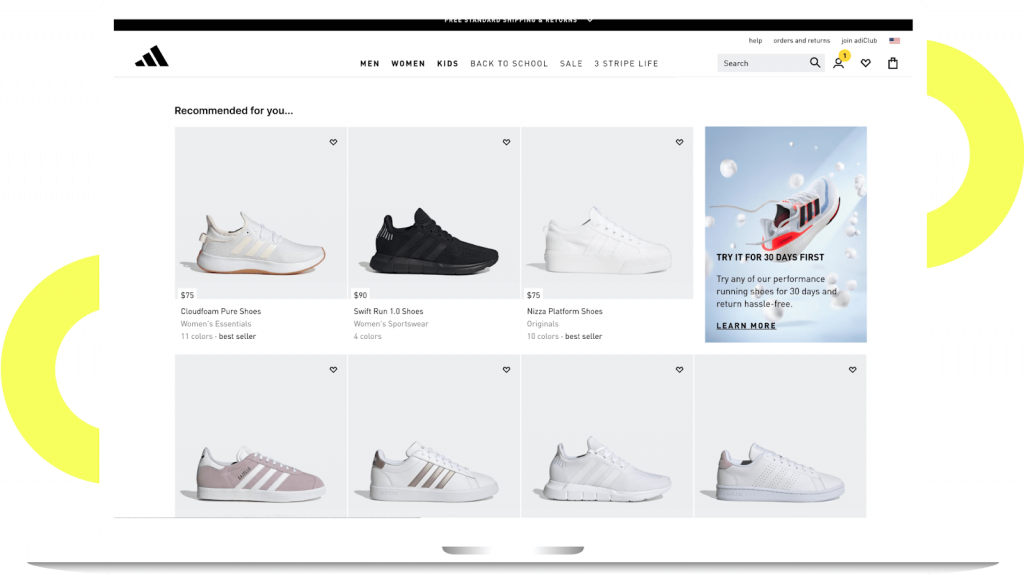
These AI-backed recommendations led to a 13% increase in homepage conversions and a 7% increase in product page conversions in just one month.
Pegasus: Using AI predictions and social proof to increase conversion rates and ROAS
Pegasus is one of the largest low-cost airlines in Europe, with 20 years of experience and over 6,000 employees worldwide.
The brand’s marketing team wanted to invest more heavily in online advertising to acquire new customers and generate more revenue from existing ones. However, with the industry being so competitive, it was imperative to also maintain a favorable return margin from its ad spend.
That’s why they started using Insider’s Predictive Ad Audiences (PAA) — a solution that relies on machine learning and AI to create ready-to-use segments based on the future behavior of visitors.
This enabled the company to invest in target audiences who were already engaged and ready to make a purchase, instead of wasting their ad budget on people with a low likelihood of purchasing. The result was a 17% increase in return on ad spend (ROAS).
Avis: Reducing costs with AI-powered conversational CX
Avis leads the global car rental industry with its expansive network and diverse fleet of vehicles.
The company faced challenges when it came to meeting its customers’ evolving digital communication expectations. They needed to enhance customer interactions by incorporating more channels and using conversational CX.
To do that, our team helped them launch a new AI-powered digital assistant on WhatsApp. This assistant is trained to handle customer inquiries about the brand and the car rental process. It can also reroute the conversation to a human agent (when necessary), as well as provide contextual recommendations and suggestions based on each customer’s needs.
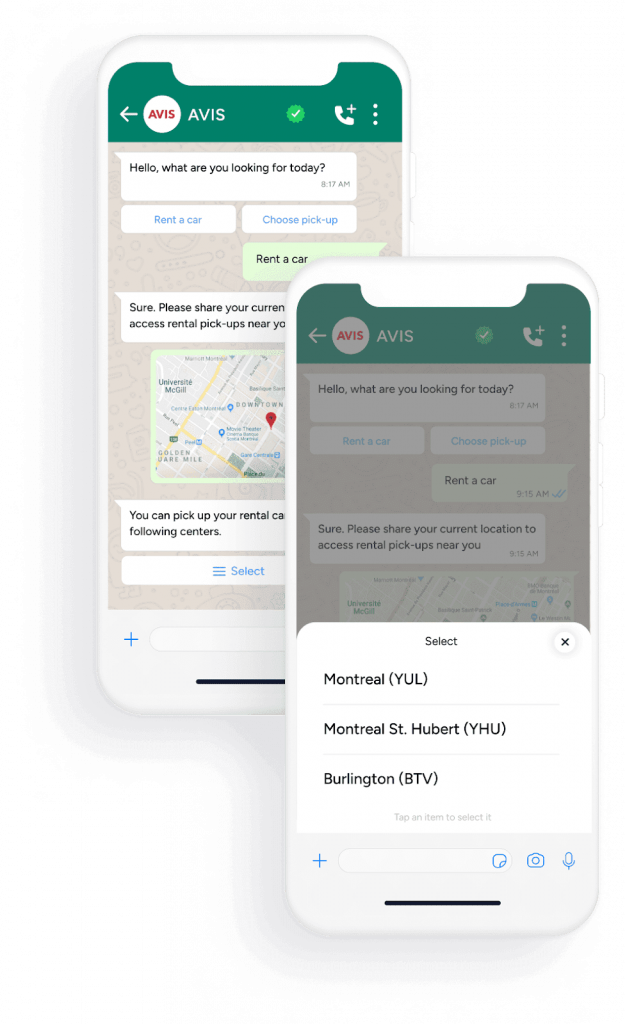
Today, the digital assistant handles over 70% of inquiries. This ensures call agents only handle complex, high-stakes conversations. Our AI handles the rest, which decreases response times and drives efficiency across the organization.
Overall, Avis achieved 39% cost savings in one year using this new approach to customer service.
Allianz: Using AI-powered audience segmentation to deliver ROI within days
Allianz is a leader in the financial services industry with a network spanning 4,000 agencies, 1,500 branches, and over 7,200 contracted institutions.
The company is well-known for its focus on providing digital-first solutions to its customers. That’s why it was looking to partner with a provider that could enable it to deliver personalized, timely, and relevant digital experiences.
Insider was the perfect fit for the job as it allowed Allianz to unify their customer data and use AI to segment their customers and predict future behaviors.
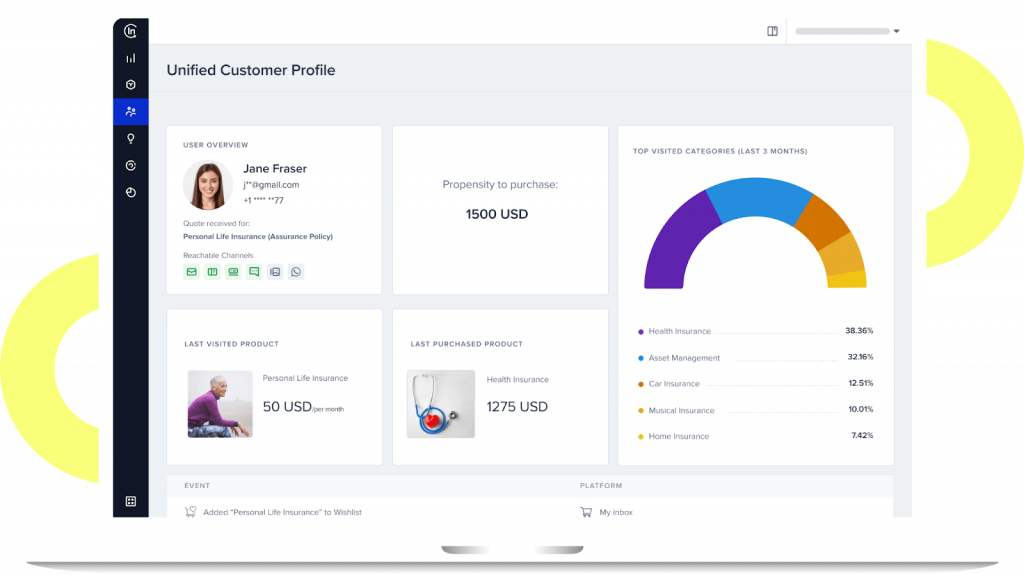
The company also wanted to ensure they never missed a chance to share relevant, timely, and personalized offers with their customers. Again, AI was the key here as our team helped Allianz build an app push notification strategy that targeted audiences built with our AI-powered segmentation capabilities.
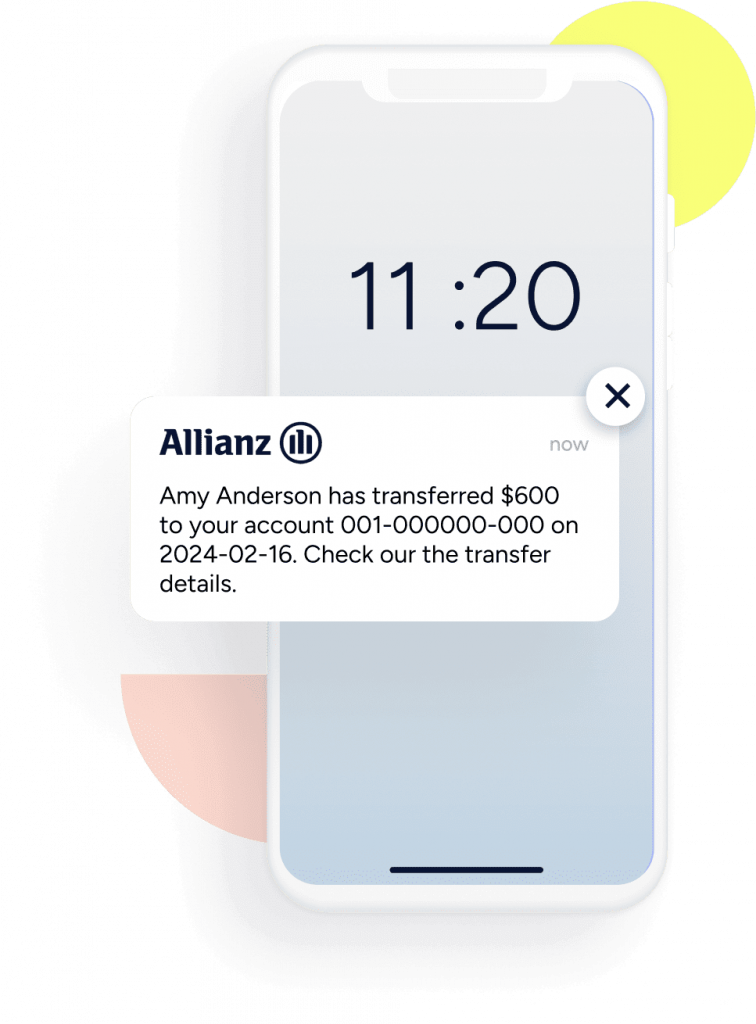
This enabled the company to re-engage customers just in time for renewal, leading to an increase in customer lifetime value (CLTV) and a 20% higher opt-in rate than the industry average.
Insider: AI-powered platform for creating personalized cross-channel experiences
Insider is an enterprise marketing platform that can help you use AI to its full marketing potential. It offers a unique combination of predictive, conversational, and generative AI that you can use to work more efficiently, drive customer engagement and satisfaction, and uncover new revenue opportunities.
Our platform is also a great choice if you’re looking to:
- Unify real-time customer data from online and offline sources in one place. This helps you lay the foundation for successful personalization by aggregating all customer data, getting a clear picture of your customers’ journeys, and building highly-targeted segments.
- Automatically track customers’ behaviors across all touchpoints, uncover their interests and preferred channels, and even predict future behaviors like likelihood to purchase or churn.
- Maximize your marketing efforts and save resources by consolidating multiple marketing channels (like web, mobile app, email, SMS, and WhatsApp) under one platform.
- Build, automate, and personalize marketing campaigns and other initiatives across all touchpoints from a single place.
- Monitor omnichannel campaign performance with an industry-leading customer journey analytics software.
- And much more.
Finally, our experienced support team, native channel integrations, and proven templates enable you to see a meaningful return on your AI investment as quickly as possible.Click here to book a demo with our team and learn how Insider can help you reach your business goals.

